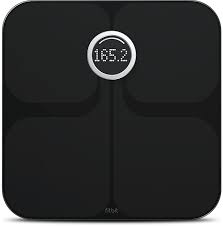Smart scales can help improve weight loss.
I have long been told that frequent weighing is not helpful for weight loss. I have written several articles on scales, but to this date, I have not found one on the use of smart scales. Prior studies have shown that frequent trips to the scale can help maintain a healthy weight and prevent weight gain. I also wrote an article on the myth that self-weighing too often can cause diet failure. Frequent self-weighing is a low-intensity strategy that can easily be molded into your daily schedule and has been shown prior research to be associated with improved weight loss and weight maintenance in adults. Internet-connected scales create a unique opportunity to study self-weighing behaviors and weight outcomes over long periods and may help this even further.
A study from 2017 tackled this question to examine associations between body weight and self-weighing over 5 years in a cohort of Withings Smart Scale users[1]. The good news is that the researchers were not funded by the producers of these scales. A de-identified commercial dataset was obtained at no cost by contacting the Withings company and thus did not violate users privacy. All participants over age 18 and with BMIs above 15 using the scale worldwide between April 2009 and December 2015 were included. A total of 91,814 participants were included in the analysis. The baseline BMI was 27.91 for males and 24.18 for females. Of the subjects, 66.7% lost or maintained their weight while they were using the scale.
The bottom line: In the adults who used the smart scale, making a weight loss target and frequent self-weighing associated with a significantly better weight loss and maintenance. I would like to see a study that compares smart scales to a standard scale or no scale at all. The study shows the promise of a smart scale in attaining weight loss and maintaining it.








Be the first to comment on "Research: Do smart scales work for weight loss?"